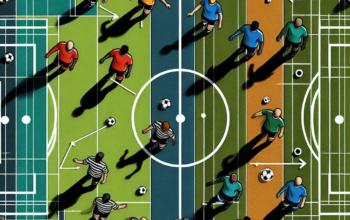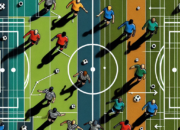Luis Enrique’s Defining Night: PSG’s Path to Glory in Munich
At what point did Luis Enrique feel it in his bones—that this was the night Paris Saint-Germain would finally conquer Europe? Perhaps it was in the calm before the storm, around 90 minutes ahead of kickoff, when he stepped onto the pitch at Munich’s Allianz Arena with his coaching team, soaking in the atmosphere and feeling the pulse of the moment.
Behind one goal, PSG’s most passionate fans—the ultras—were already in full voice, swaying and chanting with purpose. Their energy would echo throughout the night. But for Enrique, there was something more intangible at play. History had whispered in his ear. Every time a European final had been staged in Munich, a club had lifted the Champions League for the first time: Nottingham Forest in 1979, Marseille in 1993, Borussia Dortmund in 1997, Chelsea in 2012. Now PSG were on the brink of joining that special lineage. Inter Milan, with their three prior titles, stood in the way.
Luis Enrique, a man who carries deep personal scars and spiritual strength, may have drawn comfort from more than just omens. He often speaks of his daughter Xana, who passed away from bone cancer in 2019 at just nine years old. In a letter he once wrote to her, he said, “You will be the star that guides our family.” That star, no doubt, was shining brightly over him in Munich. Her memory travels with him always—not as a burden, but as a quiet source of courage.
A Tactical Dream Unfolds
Once the match began, it became immediately clear that PSG were prepared for the occasion. Luis Enrique had said in the buildup that his team understood how to break down tightly organized opponents like Inter. What followed was a masterclass in control and intent.
By the 20th minute, PSG had scored twice, executing their plan with precision. The players moved like clockwork, rotating positions with intelligence and pressing with intensity. This wasn’t just tactical discipline—it was football poetry. The passing lanes, the fluidity, the aggression in recovering the ball—it was all orchestrated from the dugout.
Even with a 3-0 cushion in the second half, Enrique wasn’t relaxed. He knew that Inter had players capable of turning a game. So when Khvicha Kvaratskhelia made it 4-0 in the 73rd minute, that was the moment Enrique likely knew the trophy was theirs. Still, his emotions remained measured—until substitute Senny Mayulu made it five near the end. That goal, from a 19-year-old who had barely been on the pitch for two minutes, felt like the perfect summary of what Enrique had created: a system where even unheralded players could shine on the grandest stage.
A Victory for the Collective
For Enrique, Mayulu’s goal was more than just a fifth nail in Inter’s coffin. It symbolized the depth, unity, and trust within this PSG squad. In a club often associated with superstar egos and dressing-room drama, Enrique had forged something different: a true team.
As Marquinhos stepped through a storm of gold confetti to lift the Champions League trophy, it wasn’t just a historic moment for PSG—it was the crowning achievement of Enrique’s second treble-winning season. He had already achieved the same feat at Barcelona in 2014–15. Only one other manager had matched this twice: his former teammate and fellow Spaniard, Pep Guardiola.
Yet, Enrique’s triumph in Paris may carry even more weight. At Barcelona, his critics often pointed to the galaxy of talent he inherited: Messi, Neymar, Suárez, Xavi, Iniesta, Busquets. The core of that squad had already tasted success. PSG was different. This was a club that had often fallen short on the European stage despite enormous spending. And while the money remained under Qatari ownership, the makeup of this squad felt transformed.

Building a New Identity
With sporting director Luís Campos by his side, Enrique set about reshaping the team. The summer transfer window saw the arrival of João Neves, Willian Pacho, and Désiré Doué—young, hard-working talents rather than household names. Kvaratskhelia arrived in January, providing the creative spark PSG had long lacked.
Yes, it took significant investment—around £200 million for those four players—but this time, the spending served a purpose. There were no vanity signings, no big names brought in for marketing appeal. Instead, Enrique’s PSG plays with heart, with discipline, and with a clear identity. They press as one, move as one, and celebrate as one.
This approach has helped wipe away the ghosts of past failures. No longer are PSG the team that collapses under pressure, or the one accused of relying too heavily on individual brilliance. Under Enrique, they are an orchestra—and every instrument is in tune.
A Legacy Cemented
For Luis Enrique, this win elevates him into the elite tier of managers. He has shown the world that his success at Barcelona wasn’t a fluke or the product of fortune. At PSG, he has built something from the ground up—crafted a team, created belief, and delivered silverware. More than that, he’s given PSG what they craved most: legitimacy.
It is easy to overlook the emotional strength that fuels Enrique’s journey. The pain of personal loss, the pressure of expectation, and the scrutiny that comes with managing a super-club—he’s handled it all with grace and resolve.
Munich was more than just a final. It was the closing chapter of PSG’s long, painful wait for a European crown. But it was also a new beginning—a chance to redefine what the club stands for.
As the confetti settled and the lights dimmed, one thing was clear: this was Luis Enrique’s masterpiece. And for the first time, Paris Saint-Germain truly stood atop European football—not just because of their wealth, but because they finally played like a team deserving of the crown.






